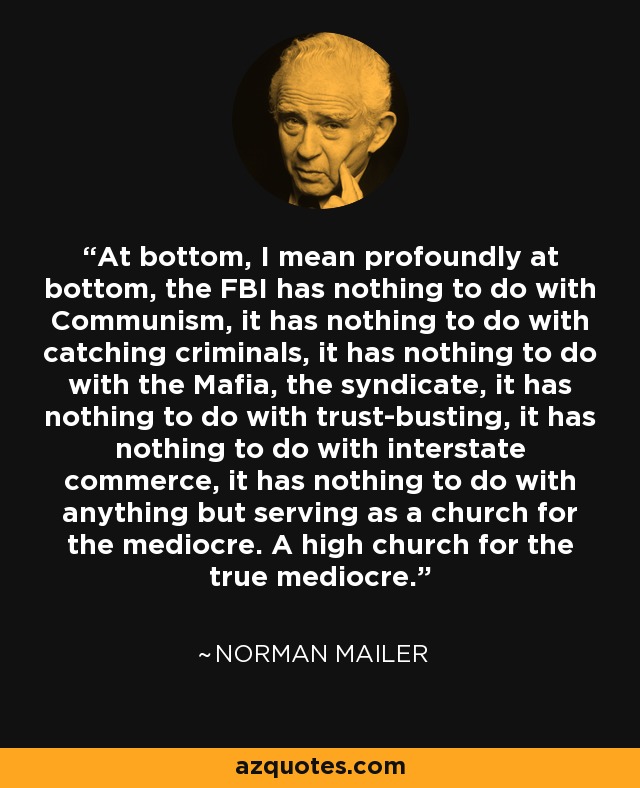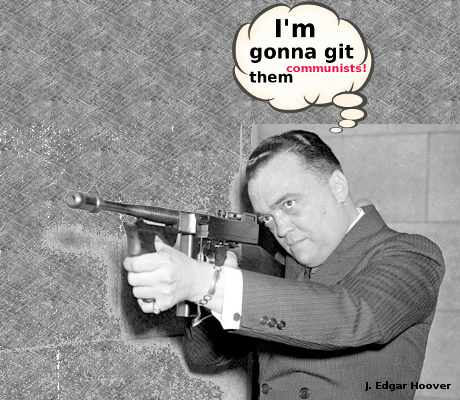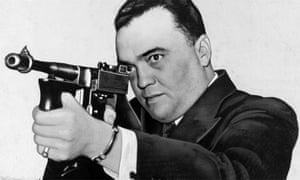
joseph the interpreter of dreams – Google Search
Mike Nova’s Shared NewsLinks
| Mike Nova’s Shared NewsLinks |
||||
|---|---|---|---|---|
| Best of The Dark Knight Soundtrack – YouTube | ||||
Best of The Dark Knight Soundtrack |
||||
| The Best of Hans Zimmer – YouTube | ||||
The Best of Hans Zimmer |
||||
| Gnostic Art – Gnostic Jesus | ||||
 Jesus the Psychonaut
“I visited a bodily dwelling. I cast out the one who was in it first, and I went in. And the whole multitude of the Archons became troubled… For he was an earthly man, but I, I am from above the heavens…I revealed that I am a stranger to the regions below.” “The Second Treatise of the Great Seth.” The Nag Hammadi Library. Ed. James Robinson. HarperCollins, 1978. 363-71 – View this photo on Flickr |
||||
| Gnostic Art – Gnostic Jesus | ||||
 Jesus + Lucifer
“Light and darkness, life and death, right and left, are brothers of one another. They are inseparable. Because of this neither are the good good, nor the evil evil, nor is life life, nor death death… But those who are exalted above the world are indissoluble, eternal.” “The Gospel of Philip.” The Other Bible. Ed. Willis Barnstone. Harper San Francisco, 1984. 88. – View this photo on Flickr |
||||
| 9:13 AM 8/3/2018 – In my as always very humble opinion, the FBI’s problem is not that it is led by the lawyers, it is the only way to lead it. FBI’s problem as an organisation is its phenomenal, indescribable STUPIDITY. fbinewsreview.org/2018/08/03/913… | ||||
9:13 AM 8/3/2018 – In my as always very humble opinion, the FBI’s problem is not that it is led by the lawyers, it is the only way to lead it. FBI’s problem as an organisation is its phenomenal, indescribable STUPIDITY. fbinewsreview.org/2018/08/03/913…
|
||||
| norman mailer on fbi quote – Google Search | ||||
|
||||
| J.E. Hoover with big gun – Google Search | ||||
|
||||
| J.E. Hoover With big gun – Google Search | ||||
|
||||
| The secret life of J Edgar Hoover | Film | ||||
J Edgar Hoover was a phenomenon. The first Director of the FBI, he remained in office for 48 years, from his appointment after the First World War to his death in 1972, achieving fame and extraordinary power. For public consumption when he died, President Richard Nixon eulogised him as: “One of the giants… a national symbol of courage, patriotism and granite-like honesty and integrity.” He ordered flags to fly at half-mast and that Hoover’s body lie in state in the Capitol.
In private, on hearing that he had died, Nixon had responded merely: “Jesus Christ! That old cocksucker!” Months earlier, closeted with key advisers, he had held forth on the need to persuade the elderly Hoover to resign. “We have on our hands here a man who will pull down the temple with him, including me.” Nixon, soon to be disgraced and forced to resign, was of course himself no paragon. Most presidents before him, though, had had cause to fear Hoover or been troubled by what his FBI had become. Harry S Truman wrote during his presidency: “We want no Gestapo or secret police. FBI is tending in that direction. They are dabbling in sex-life scandals and plain blackmail… Edgar Hoover would give his right eye to take over, and all congressmen and senators are afraid of him.” Hoover himself, meanwhile, had a personal secret that – in his era – could have destroyed him if revealed. Clint Eastwood referred to it this year before the launch of his movie, when he assured the J Edgar Hoover Foundation that J Edgar would not “portray an open homosexual relationship” between Hoover and his long-time male companion, Clyde Tolson. Eastwood stretched the truth. Though there is just one passionate kiss between Leonardo DiCaprio and Armie Hammer, the two actors portraying them in the movie, the relationship with Tolson is a central theme. In real life, all Washington knew was that the pair dined daily together, vacationed together, did everything but move in together, and the whispers flew. When a magazine article in the 1930s referred to Hoover’s “mincing” gait, and a diplomat commented on his “conspicuous perfume”, Hoover struck back. He gathered derogatory information on the offending journalist, and asserted – falsely – that he did not use perfume. Real information on the Hoover-Tolson relationship surfaced only long after both men were dead, during research for my book. A surprising find was the account by Luisa Stuart, once a celebrated model, tracked down because she featured in a droll photograph taken with Hoover and Tolson one New Year’s Eve in the late 1930s at the Stork Club – the place to be seen in New York at the time. In the photo, Hoover is shown holding his hands up as Stuart, armed with a toy shotgun, “threatens” him. Later that night, in the dark of a limousine when they left the club, she remembered: “I noticed they were holding hands all the way, just sitting there talking and holding hands with each other… I was so young and those were different times. But I’d never seen two men holding hands.” Joseph Shimon, a former Washington police inspector, recalled a taxi driver reporting the pair had been “kissing and ass-grabbing” during a cab journey. Harry Hay, founder of America’s first gay rights group, remembered that on vacation in California, in “a circle in which they didn’t have people who weren’t gay… They were nodded together as lovers.” The Eastwood movie includes a bizarre scene that depicts Hoover, after his mother’s death, donning one of her dresses. It is a nod towards allegations I first reported, that he on occasion cross-dressed. I had information from three sources, two men who said an “easily recognisable” photograph of Hoover in an evening gown circulated in the gay community in 1948, and an account by a millionaire’s former wife of secret sex parties that she claimed to have witnessed in the late 50s. Hoover, the woman said, had been “dressed like an old flapper, like you see on old tintypes”. Bill Clinton, who as president in 1993 was mulling over who to appoint as FBI Director, thought the cross-dressing reports were hilarious. “It’s going to be hard,” he grinned during a speech at a press function, “to fill J Edgar Hoover’s… pumps.” That I published such allegations at all, however, to this day draws roars of fury from old Hoover loyalists. Other accounts of the Director’s alleged sexual activity, if true, would certainly have destroyed him had they become public. A former Bureau inspector and trusted associate named Jimmy Corcoran said years later that Hoover, youthful at the time, had once asked him to deal with a serious “problem”. He had been arrested on sex charges involving a young man during a trip to New Orleans. Corcoran, who had powerful contacts in the state, said he intervened to hush the matter up. There is, too, a claim that as late as 1969, when Hoover was in his early 70s, he dallied with teenage boys during his habitual summer break in California. An element of corroboration came from Don Smith, an officer on the Los Angeles police vice squad, who told me of interviews he conducted with youngsters during a paedophile investigation. “The kids,” Smith said, “brought up several famous names, including those of Hoover and his sidekick”. For me, the most significant, credible information on Hoover’s sexuality came with the discovery that Hoover for a while consulted Marshall de G Ruffin, a Washington psychiatrist who became president of the Washington Psychiatric Society. De Ruffin’s widow Monteen recalled learning from her husband that his distinguished patient was “definitely troubled by homosexuality”. After several sessions, however, “Hoover got very paranoid about anyone finding out he was a homosexual, and got scared.” As if to compensate, Hoover lashed out at and sought to expose other homosexuals. For years he had his agents infiltrate and monitor homosexual-rights groups, while he sounded off publicly about “sex deviates in government service”. My conclusion after five years’ research was that while Hoover may have spent much of his life repressing his private urges while building an image of himself as the acme of sexual purity, he did sometimes lapse – risking catastrophe every time. Having studied the information I assembled, two noted specialists in psychiatry and psychology said they believed Hoover’s sexual torment was very pertinent to his use and abuse of power as America’s top law-enforcement officer. Dr John Money, professor of medical psychology at Johns Hopkins University, thought Hoover “needed constantly to destroy other people in order to maintain himself. He managed to live with his conflict by making others pay the price.” Dr Harold Lief, professor emeritus of psychiatry at the University of Pennsylvania, concluded that Hoover suffered from “a personality disorder, a narcissistic disorder with mixed obsessive features… paranoid elements, undue suspiciousness and some sadism. A combination of narcissism and paranoia produces what is known as an authoritarian personality. Hoover would have made a perfect high-level Nazi.” The eight decades of Hoover’s life tell their own story. As early as his teen years, his mind was closing on issues that were to dominate his era. In the school debating society, he argued against women getting the vote and against abolition of the death penalty. He could never bear to come second in anything. When his father began to suffer from mental illness, a niece told me, Hoover “couldn’t tolerate the fact. He never could tolerate anything that was imperfect.” Another relative said: “I sometimes have thought that he really had a fear of becoming too personally involved with people.” William Sullivan, a close FBI associate, thought his boss “didn’t have affection for one single solitary human being”. Hoover joined the Bureau – at that time just the Bureau of Investigation (the word “Federal” was only added in the 1930s) – as America’s first great Communist scare was getting under way, and handpicked as his assistant a man named George Ruch. One of two key associates to name their own sons J Edgar, Ruch expressed astonishment that left-wingers should even “be allowed to speak and write as they like”. Hoover and Ruch favoured deporting people merely for being members of radical organisations, and used the Bureau to spy on lawyers representing those arrested in the infamous Red Raids of 1920. One of them, on whom he was to keep tabs for half a century and deem “the most dangerous man in the United States”, was future Supreme Court justice Felix Frankfurter. Hoover never joined a political party and claimed he was “not political”. In fact, he admitted privately, he was a staunch, lifelong supporter of the Republican party. He secretly aspired to be president and considered running against Franklin D Roosevelt, whom he thought suspiciously left-wing. Hoover publicly expressed support for Senator Joe McCarthy shortly before McCarthy claimed Truman’s State Department was harbouring 200 members of the Communist party. His agents slipped file material to the senator for use in his infamous inquisition, while publicly denying doing so. The favourable publicity Hoover enjoyed was partially deserved. He cleaned up a Bureau that had been notorious for corruption and inefficiency, replacing it with an agent corps that became a byword for integrity. One veteran defined the ideal new recruit as a man who had to represent “the great middle class”, who “will always eat well and dress well, but will never get that sleek Packard or sumptuous house. He belongs to the Bureau body and soul”. Hoover brought modernity and co-ordination at a time of disorganisation. He built the first federal fingerprint bank, and his Identification Division would eventually offer instant access to the prints of 159 million people. His Crime Laboratory became the most advanced in the world. He created the FBI National Academy, a sort of West Point for the future elite of law enforcement. While all this was positive, Hoover’s Division 8, euphemistically entitled Crime Records and Communications, had a priority mission. Crime Records pumped out propaganda that fostered not only the image of the FBI as an organisation that spoke for what was right and just, but of the Director himself as a champion of justice fighting “moral deterioration” and “anarchist elements”. Hoover used the department to preach the notion that the political left was responsible for all manner of perceived evils, from changing sexual standards to delinquency. Crime Records portrayed Hoover as the dauntless scourge of serious crime. In the movie J Edgar, long sequences are devoted to his supposed role in tracking down the murderer of the aviator Charles Lindbergh’s baby son. In real life, while Hoover postured as the Sherlock who led the probe, the case was in fact broken thanks to work done by another federal agency. Similar phoney self-promotion featured in the fight against the bandits of the 30s, Bonnie and Clyde, Machine Gun Kelly, John Dillinger and Alvin Karpis. Hoover hogged the limelight when the thugs were killed or captured and was jealous and vindictive when it fell instead on one of his proteges. Late in the Eastwood movie, his companion, Clyde Tolson, peruses a memoir Hoover has just completed about his life and career. Then, reproachfully, he remarks that the account is a pack of lies. There was no real-life memoir, but the line is perceptive. Issues of fact versus fabrication and distortion, truth versus outright lie or self-delusion, dominate Hoover’s story. Hoover’s public position on race, Southerner that he was, was that of the paternalistic white nativist. Less openly, he was racially prejudiced. He shrugged off the miseries of black Americans, preferring to claim they were outside his jurisdiction. “I’m not going to send the FBI in,” a Justice Department official recalled him saying testily, “every time some nigger woman says she’s been raped.” FBI agents paid more attention to investigating black militants than pursuing the Ku Klux Klan. In the 60s, Hoover went to extreme lengths to establish that Martin Luther King and his movement were under Communist control. When surveillance established only that King was having sex with women other than his wife, FBI aides worked to “neutralise” him by slipping prurient information to the press. When the civil rights leader was awarded the Nobel Peace Prize, Hoover was enraged. When thousands mourned King’s assassination, Hoover went to the races. He later tried to prevent King’s birthday being declared a national holiday. All this took place against a personal background of which few are today aware – a rumour that Hoover himself had black ancestry. Early photographs do show him looking somewhat negroid, with noticeably wiry hair. Gossip along those lines was rife in Washington and – true or not – Hoover must have been aware of it. Did anxiety on that front shape the way he behaved towards blacks – just as he lashed out at homosexuals while struggling with his own homosexuality? Research into the sex angle, meanwhile, may explain why – at the very time in US history that organised crime was on the rise and could have been effectively countered – Hoover failed to act. The man who had found fame for hunting down the bank robbers and bandits of the 30s let the Mafia flourish. It seemed at first, before the Second World War, that Hoover would clamp down on the mob. Then, abruptly, he turned off the pressure. In the 50s, he actively obstructed the Kefauver Committee, which concluded there was indeed “a nationwide crime syndicate known as the Mafia”. Not so, said Hoover. When a 1958 report by his own agents also said the Mafia was real, he dismissed it as “baloney”. The FBI would take vigorous action only very belatedly, in the 1960s, under pressure from Attorney General Robert Kennedy. Former officials I interviewed, including three former attorney generals and several former assistant directors of the FBI, were at a loss to explain why Hoover refused to tackle the threat of organised crime. “Hoover’s attitude,” said Neil Welch, a senior former agent who eventually distinguished himself fighting the Mafia, “was so contrary to reality as to be a reason for great speculation.” Hoover himself, it is now clear, had contacts with organised criminals or their associates in circumstances that made it possible – likely even – that they learned of his sexual proclivities. More than one top mobster claimed the outfit had a hold on Hoover. Meyer Lansky, the syndicate’s co-founder, was said to have “pictures of Hoover in some kind of gay situation” and an associate quoted Lansky as claiming, “I fixed that sonofabitch.” Carmine Lombardozzi, who was known as “the Italian Meyer Lansky”, said: “J Edgar Hoover was in our pocket.” Blackmail was the tactic that worked for Hoover, too, in his dealings with politicians. The title of my biography of him, Official and Confidential, derives from the name of a file group that was held in locked cabinets in Hoover’s office. By an official count after his death, the Director held 883 files on senators and 722 on congressmen. Many documents were shredded after Hoover’s death, but those that survive speak for themselves. An example is this 1959 report: Dear Mr Hoover, You may be interested in the following information… (NAME WITHHELD) [said] she had spent the afternoon of 3 June 1959, with Senator (NAME WITHHELD) in his private office. She also said she had sexual intercourse with the senator during the afternoon “on the couch in the senator’s office…” Sincerely yours, James H Gale, Special Agent in Charge Such reports, I learned, were used to bend politicians to Hoover’s will. He might need their co-operation to procure funds, to gain political muscle, or to avert investigation of operations he preferred kept hidden. An aide to Senator Edward Long, the Democrat from Missouri, was to swear an affidavit describing what occurred when Long was planning hearings on the FBI – with a special focus on electronic eavesdropping. A senior Hoover aide came to call, and the conversation went as follows: “Senator, I think you ought to read this file that we have on you. You know we would never use it, because you’re a friend of ours… We just thought you ought to know the type of stuff that might get around and might be harmful to you… They handed him the folder… Long read it for a few minutes. [Then] they went on their way. The next thing I knew we had orders to skip over the FBI inquiries.” Hoover snooped not just on politicians but on officials high and low, on Supreme Court justices – at least 12 of them – even on presidents. He built files on writers, actors, on citizens across the spectrum who caught his malignant eye. Many feared what the Director might have found – whether he had compromising information on them or not. In life, Hoover denied time and again that there were such “secret dossiers”. Acting Attorney General Laurence Silberman, the first person to peruse the secret files after Hoover’s death in 1972, learned otherwise. “J Edgar Hoover,” he told me, “was like a sewer that collected dirt. I now believe he was the worst public servant in our history.” The Director more than got away with his excesses. He was showered with honours. Even today, in spite of the ugly truths that have surfaced since his death – an official probe found that on top of everything he had also been personally corrupt – the sign on the façade of FBI headquarters in Washington proclaims, in gold lettering, that it is the “J EDGAR HOOVER BUILDING”. “American society”, mused Dr Lief, the psychiatrist who thinks the facts indicate Hoover would have made a perfect high-level Nazi, “has a strangely polarised attitude towards its heroes. On the one hand people love to find the idol has clay feet, to find the flaw in the famous man. On the other, they are reluctant to take the hero off his pedestal. This is a curious contradiction in our society, and sometimes a dangerous one.” Anthony Summers is the author of eight non-fiction books; the most recent is The Eleventh Day, on 9/11. A new edition of Official and Confidential: The Secret Life of J Edgar Hoover, is published this month (Ebury, £8.99). The movie J Edgar is out on 20 January |
||||
| Nina Simone – Sinnerman – YouTube | ||||
Nina Simone – Sinnerman |
||||
| Wray Is Just Another FBI Lawyer In Charge Of Agents Who Deserve Better | ||||
Christopher Wray was sworn in as the eighth Director of the FBI one year ago. He took the position as America’s top G-man after the national meltdown over the firing of former director James Comey. President Trump fired Comey on May 9, and 29 days later, while still learning to navigate the turbulent waters of the swamp, he formally announced his intention to nominate Wray.
Twenty-nine days is hardly enough time to find a good nanny, but the fledgling Administration not yet five-months-old found their man and placed their bets on Wray’s stellar reputation as a senior government lawyer from the Department of Justice. Wray was a winner on paper, and because grandstanding is what they do, senators on both sides of the aisle fawned over him, receiving assurances he would maintain his independence from Trump. For being in the right place at the right time, Wray was confirmed by the Senate by a vote of 92-5, and on Aug. 2, 2017, he was sworn in as FBI Director. In the rush to make the FBI right again, everyone, it seemed, got what they wanted. The politicians were happy. The Administration put out another fire, and the DOJ got another DOJ attorney to take control of the FBI. But a year later, now that the mass hysteria over Comey’s firing has subsided, what exactly did the FBI agents get out of all that drama? As a former FBI agent, I am sorry to report that what they got was more of the same, in the form of yet another company lawyer from the DOJ, at a time when what the agents really needed was leadership in the form of someone who was actually an FBI agent. And because Wray’s ten-year term won’t expire until the year 2027, it is also my duty to report that, sadly, an entire generation of FBI agents will never know what it’s like to be led by one of their own. FBI Directors And The DOJSince officially becoming the Federal Bureau of Investigation 83 years ago, the FBI has had a total of eight Directors. Only two of them had ever served as FBI agents (other agents have taken the top job but only briefly to keep the seat warm as “Acting Director”). Lawyers Are Not LeadersAt the heart of the problem is one simple fact: Lawyers, with few exceptions, are not leaders, they are litigators, wired to interpret and argue the law. In the courtroom or on the bench, lawyers are in their element, but in positions of authority, lawyers and other administrators up through the DOJ chain of command who have never been agents often do not understand and cannot connect in any meaningful way with the agents they try to lead. And without that bond, lawyers default to the lawyer’s playbook to manage the workforce, leaving the agents struggling to operate in what has become a stifling culture of micromanagement. The FBI Response To The IG ReportAnyone who knows anything about FBI agents knows that one of the fastest ways to lose the faith and trust of the men and women of the FBI is to hold them accountable for something they didn’t do. You would think Director Wray would’ve read the memo on that particular point, but apparently he has not, and is showing his true colors as a lawyer from the DOJ in what is one of the signature challenges of his tenure – managing the fallout from the DOJ Inspector General’s Report on the Hillary Clinton e-mail and private server investigation. An Agent-Director For The FBINow, more than ever, with all due respect to Wray, what FBI agents need is an agent to lead them, a gifted and seasoned criminal investigator or counterintelligence agent who, just like them, made the cut after a highly competitive FBI Special Agent selection process, survived the FBI Academy at Quantico, carried a gun and a badge, worked the hard, complex cases, and fought the good bureaucratic fight. Steven G. Noh, CPP® is a former FBI agent who served in the FBI Los Angeles Field Office as an FBI SWAT operator and sniper. A board-certified protection professional, Mr. Noh currently resides in Orange County, CA where he works as a licensed investigator and security consultant specializing in protecting intellectual property from the insider threat. |
||||
| Khachaturian – Masquerade Suite – YouTube | ||||
Khachaturian – Masquerade Suite |
||||
| Telefon Movie (Mind Control Scene): “Trigger Words” Delivered – YouTube | ||||
Telefon Movie (Mind Control Scene): “Trigger Words” Delivered |
||||
| Stopping by Woods on a Snowy Evening by Robert Frost | Poetry Foundation | ||||
Stopping by Woods on a Snowy EveningBy Robert Frost
Whose woods these are I think I know.
His house is in the village though;
He will not see me stopping here
To watch his woods fill up with snow.
My little horse must think it queer
To stop without a farmhouse near
Between the woods and frozen lake
The darkest evening of the year.
He gives his harness bells a shake
To ask if there is some mistake.
The only other sound’s the sweep
Of easy wind and downy flake.
The woods are lovely, dark and deep,
But I have promises to keep,
And miles to go before I sleep,
And miles to go before I sleep.
Robert Frost, “Stopping by Woods on a Snowy Evening” from The Poetry of Robert Frost, edited by Edward Connery Lathem. Copyright 1923, © 1969 by Henry Holt and Company, Inc., renewed 1951, by Robert Frost. Reprinted with the permission of Henry Holt and Company, LLC.
Source: Collected Poems, Prose, & Plays (Library of America, 1995)
|
||||
| Telefon – YouTube | ||||
Telefon |
||||
| Asylum (7/10) Movie CLIP – In the Past (2005) HD – YouTube | ||||
Asylum (7/10) Movie CLIP – In the Past (2005) HD |
||||
| U.S. Intelligence Officials Warn of ‘Pervasive’ Russian Efforts to Disrupt 2018 Elections | ||||
Senior intelligence officials described Russian efforts to interfere in the 2018 midterm elections as deep, real and ongoing, showcasing their efforts to combat a threat President Trump has repeatedly dismissed. |
||||
| “This Thing Has Tentacles We Have No Idea About”: Mueller’s American Target List Is Becoming Clearer | ||||
Mueller departs after a closed-door meeting with members of the Senate Judiciary Committee.
From AP/REX/Shutterstock.
Robert Mueller’s indictment of 12 Russian military officers for hacking the Democratic National Committee’s computers was a stunningly difficult feat of counter-intelligence and criminal investigation. The document’s 29 pages were filled with granular details about the clandestine, overseas 2016 election-interference operation. Yet the indictment’s greatest significance may be buried in the facts that Mueller underplayed, and in the possible conspirators—Americans—whose identities the special counsel only teased.
“The thing that this indictment completely changes is it says that the hacking conspiracy wasn’t complete before all of these communications between Russians and Americans took place,” says Susan Hennessey, the executive editor of the blog Lawfare. “It was ongoing, even after WikiLeaks released the D.N.C. material in July 2016. It endured in the period in which we know members of the Trump campaign were communicating with indicted conspirators about the topic of the conspiracy. Whether or not we’re talking about Donald Trump Jr. or someone on the periphery, we still have a lot of missing pieces. But it pretty dramatically increases the possibility that someone actually did cross the line.” Trump Jr. and his dad’s presidential campaign have denied trafficking in stolen Democratic e-mails. The special counsel keeps chipping away, though. “Mueller’s work says these Russian guys were in touch with Americans all over the place,” one congressional investigator says. “And there is a point in the 2016 timeline, after which, if you talked to these people—whether or not you believed they were Russian agents—and said, ‘Hey, I love what WikiLeaks is putting out there. Can you give me some more?,’ you are soliciting goods that you know to be stolen. And that’s a crime.” Mueller’s indictment makes reference to five Americans who were in touch with the Russians through Guccifer 2.0, the hackers’ online front. Two of those individuals have essentially raised their hands: Roger Stone, the gleeful political dirty trickster and longtime Trump adviser, and Lee Stranahan, a reporter for Breitbart News and then Sputnik, a Russian government-controlled media outlet. Both have denied knowing that Guccifer was peddling stolen e-mails. The Smoking Gun, an investigative-journalism Web site, also volunteered that it is the “reporter” who Mueller says was offered stolen e-mails by Guccifer. Mueller describes a fourth American as a “state lobbyist and online source of political news,” who received 2.5 gigs of stolen Democratic data from Guccifer. That fits with the profile of Aaron Nevins, a Florida Republican operative who blogged under the pen name Mark Miewurd (get it?), and who has claimed he was acting as a journalist in seeking out the hacked e-mails. |
||||
| Suspected Russian spy caught working inside US Embassy in Moscow – CNN | ||||
|
||||
| Tampa girl, 4, dies after being thrown into river by mother, police say | ||||
Signed in as mikenova
Share this story on NewsBlur |
||||
| Child dies after allegedly being thrown in Tampa river, mother charged with murder | ||||
A 4-year-old girl has died after her mother apparently threw her in a Tampa river on Thursday, police said. Shakayla Denson, 26, was charged with first-degree felony murder, aggravated child abuse and grand theft auto charges, Tampa police said.
CBS Tampa affiliate WTSP reports that Denson is accused of stealing a car from an auto repair shop, then parking the vehicle near Hillsborough River. Police said she then she walked into the river at about 4 p.m. and left her daughter, Je’Hyrah Daniels, in the water. Denson was taken into custody walking not far from where the child was allegedly dumped in the river. Police said they responded to a report of a child in the water at 4:30 p.m., and a dive team member discovered an unconscious child submerged about 75 feet off shore. “Unfortunately at this point, there are a lot more questions than answers,” said Tampa Police Chief Brian Dugan, who called it a “completely tragic event.” “It’s a crazy world we live in,” he said. This is a developing story and will be updated. © 2018 CBS Interactive Inc. All Rights Reserved. |
||||
| Child dies after being thrown from Tampa bridge – CBS News | ||||
|
||||
| Tampa girl, 4, dies after being thrown into river by mother, police say – Fox News | ||||
|
||||
| king james bible – Google Search | ||||
|
||||
| joseph the interpreter of dreams – Google Search | ||||
|







